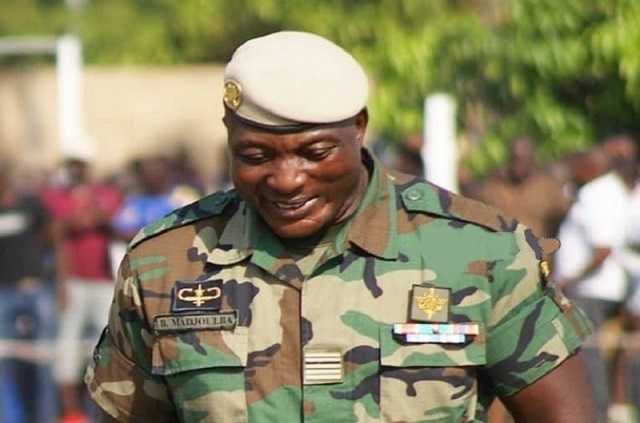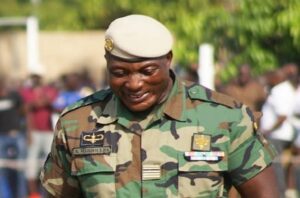
 Six months after the death of Colonel Bitala Madjoulba, – assassinated during the night of 3 to 4 May, a few hours after the inauguration of President Faure Gnassingbé which he had just attended – the investigation seems to be progressing. The ballistics tests carried out by France and Ghana have spoken for themselves: the commander of the 1st Rapid Intervention Battalion (BIR) was murdered with his own weapon, a Beretta revolver. In the wake of these findings, the judge in charge of the case launched a rogatory commission with a view to having several soldiers heard.
Six months after the death of Colonel Bitala Madjoulba, – assassinated during the night of 3 to 4 May, a few hours after the inauguration of President Faure Gnassingbé which he had just attended – the investigation seems to be progressing. The ballistics tests carried out by France and Ghana have spoken for themselves: the commander of the 1st Rapid Intervention Battalion (BIR) was murdered with his own weapon, a Beretta revolver. In the wake of these findings, the judge in charge of the case launched a rogatory commission with a view to having several soldiers heard.
Murdered with his own Beretta. This is the unexpected conclusion reached by the French experts in the investigation into the murder of Colonel Madjoulba. They submitted their report to the Togolese judicial authorities in August and were tasked with comparing the bullet found on the body of the BIR commander with 152 casings from 76 different weapons seized by the Togolese authorities. The casings had been sent to France at the end of June via an international rogatory commission as part of a request for mutual legal assistance. A similar request had been made to the Ghanaian authorities. The verdict: “The results [of the two expert reports] are the same”, said a source at the heart of the investigation, under cover of anonymity.
This conclusion is bad news for the investigators: the weapon will not lead them directly to the murderer, contrary to what they had initially hoped. In any event, following the results of the ballistics tests, Awi Adjoli, the judge in charge of the case, issued a rogatory commission. The aim was to have judicial police officers interview certain soldiers from the camp where Colonel Madjoulba was serving. According to the same source, the hearings are currently underway and have not so far resulted in any detention.
Murdered with his own Beretta. This is the unexpected conclusion reached by the French experts in the investigation into the murder of Colonel Madjoulba. They submitted their report to the Togolese judicial authorities in August and were tasked with comparing the bullet found on the body of the BIR commander with 152 casings from 76 different weapons seized by the Togolese authorities. The casings had been sent to France at the end of June via an international rogatory commission as part of a request for mutual legal assistance. A similar request had been made to the Ghanaian authorities. The verdict: “The results [of the two expert reports] are the same”, said a source at the heart of the investigation, under cover of anonymity.
This conclusion is bad news for the investigators: the weapon will not lead them directly to the murderer, contrary to what they had initially hoped. In any event, following the results of the ballistics tests, Awi Adjoli, the judge in charge of the case, issued a rogatory commission. The aim was to have judicial police officers interview certain soldiers from the camp where Colonel Madjoulba was serving. According to the same source, the hearings are currently under way and have not so far resulted in any detention.
According to our information, six months after the events, the body of the victim is still in the Lomé morgue. However, the autopsy has long since been completed. If it is true that in the losso tradition people who have disappeared from violent death must be buried on the day of death, why has the body still not been returned to the family? According to a well-informed source, the Togolese justice system has put forward the idea of carrying out a second autopsy on the body.
